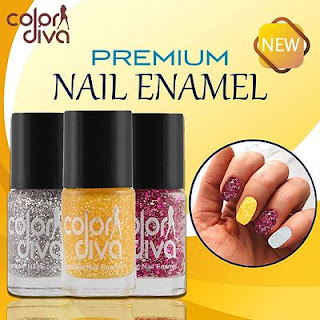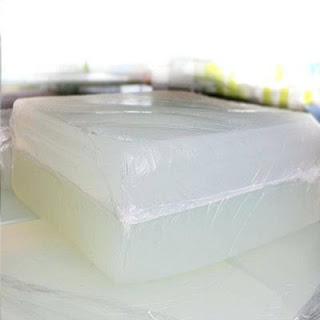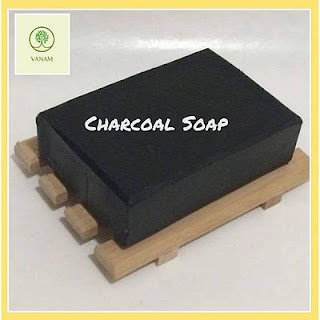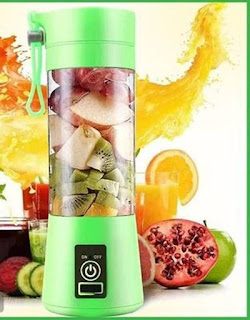Know about Methylene chloride
Methylene chloride is used in various industrial processes,
in many different industries including paint stripping, pharmaceutical manufacturing, paint remover
manufacturing, and metal cleaning and degreasing. The most common means of exposure to methylene
chloride is inhalation and skin exposure.
Is methylene chloride harmful for humans?
Methylene chloride (CH2Cl2) is a colorless liquid
that can harm the eyes, skin, liver, and heart. Exposure can cause
drowsiness, dizziness, numbness and tingling limbs, and nausea. It may cause
cancer. Severe exposure can cause loss of consciousness and death.
What foods is methylene chloride in?
Food and Beverage Manufacturing
For example, methylene chloride can be used to remove caffeine from
unroasted coffee beans and tea leaves, to make decaffeinated
coffee and tea. Methylene chloride also is used in processing spices, creating
hops extract for beer and other flavorings for the food and beverage
industries.
Is methylene chloride safe to eat?
Ingestion may cause nausea, vomiting, gastrointestinal irritation and
burns to the mouth and throat. Methylene chloride is a poison and may
be fatal if swallowed.
What are the harmful effects of methylene chloride?
Inhalation - can cause coughing, wheezing and/or shortness of breath.
Higher levels of dichloromethane inhalation can lead to headache, mental
confusion, nausea, vomiting, dizziness and fatigue.
What happens if you drink methylene chloride?
Ingestion of methylene chloride is uncommon, yet can lead to
significant toxicity and prolonged CO toxicity. Methylene chloride is
frequently formulated with methanol; individuals who intentionally ingest
methylene chloride can experience concomitant methanol toxicity.
Has methylene chloride been banned?
22, 2019) — The U.S. Environmental Protection Agency's (EPA) regulations
to prohibit the manufacture (including import), processing, and distribution of
methylene chloride in all paint removers for consumer use will go into
effect after November 22, 2019.
Why is methylene chloride banned?
The Obama administration proposed a ban on methylene chloride in early
2017, saying it posed 'unreasonable risks' to human health. The Environmental
Protection Agency on Friday restricted the use of a toxic chemical used
in paint and coating strippers that has been linked to dozens of
accidental deaths.
Why is methylene chloride used in extraction?
Methylene chloride is immiscible with water and when mixed
separates from water to form a two layer mixture. Because methylene
chloride is denser than water it usually comprises the lower layer in the two
part mixture. By mixing brewed tea with methylene chloride, the caffeine can be
extracted into the organic layer.
Is methylene chloride banned in Europe?
The European Union's crackdown on paint strippers containing
dichloromethane (DCM, also known as methylene chloride) is set to take full
effect on June 6. Federal health officials have linked methylene chloride
paint strippers to 13 U.S. deaths over two years.
How do you clean methylene chloride?
Sponge 3-percent hydrogen peroxide solution over stubborn
stains. As the peroxide bubbles and fizzes, it breaks down the methylene
chloride bonds. Work in small sections, wiping the peroxide away with a damp
cloth as soon as the bubbling stops. Peroxide is a natural bleaching agent.
Is methylene chloride banned in Canada?
Methylene chloride has been on the list of toxic substances under
Canadian law for over two decades. Rather than banning the chemical,
the federal government opted for writing a voluntary guideline on how to reduce
the risk associated with using paint strippers containing this chemical in the
workplace.
Is methylene chloride bad for the environment?
Many chemical waste sites, including NPL sites, contain methylene
chloride and these might act as additional sources of environmental
contamination through spills, leaks, or evaporation. Because methylene chloride
evaporates readily, most of it is released into the air.
Can methylene chloride be heated?
What are fire hazards and extinguishing media for methylene chloride?
Flammable Properties: Can ignite if strongly heated. Suitable
Extinguishing Media: Carbon dioxide, dry chemical powder, appropriate foam,
water spray or fog.
Is methylene chloride acidic or basic?
Can methylene chloride go down the drain?
No waste streams containing methylene chloride shall be disposed of in
sinks. Decontaminate work space with 70-75% ethanol. Wash hands and arms with
soap and water after finished. Contaminated disposables should be discarded as
hazardous waste according to EH&S waste disposal procedures.
Is methylene chloride corrosive to metal?
May form explosive mixtures in atmospheres having high oxygen content.
Conditions to Avoid: Excess heat, attacks some plastics, rubber, and coatings,
confined spaces, When no water is present, dichloromethane is not
corrosive to metals.
Can you still buy methylene chloride?
Numerous people have died from exposure to methylene chloride. In 2017,
the U.S. Environmental Protection Agency (EPA) proposed to ban this chemical's
use in paint stripping. In 2019, EPA only finalized the ban on consumer
uses and sales, leaving workers unprotected.
Which solvent has been banned?
Surprise sources of ozone-depleting methyl chloroform found
in Europe. Levels of the banned industrial solvent methyl chloroform (MCF) were
thought to have fallen nearly to zero in the atmosphere over Europe.
Is chloride a methylene?
Methylene chloride, also called dichloromethane, is a volatile,
colorless liquid with a chloroform-like odor. Methylene chloride is used in
various industrial processes, in many different industries including paint
stripping, pharmaceutical manufacturing, paint remover manufacturing, and metal
cleaning and degreasing.
Does non methylene chloride remover work?
Alternative paint removers that don't contain methylene chloride, such
as those with NMP, dibasic esters, and benzyl alcohol, “work much, much
less effectively for multilayer applications,” Morose notes.
What are the properties of methylene chloride?
The Methylene chloride is a colourless liquid that has a sweet,
penetrating, and gives ether-like smell. It is a volatile liquid
chlorinated hydrocarbon and is non-combustible. But if exposed to higher
temperatures, it may produce toxic chloride fumes. Vapours are narcotic at
higher concentrations.
What is the formula of methylene chloride?
CH2Cl2
How do you use methylene chloride paint remover?
Paint stripping typically involves immersing an item in methylene
chloride in an open tank, leaving it to soak for several hours or overnight and
then washing it off using high-pressure water. Manual scrubbing and scraping is
often carried out to remove excess paint after soaking.
Is methylene chloride decaffeination safe?
Based on extensive research data, the U.S. Food and Drug Administration
(FDA) has determined that methylene chloride is safe for use in coffee
decaffeination. ... This method of decaffeination (sometimes called the KVW
method in Europe) removes between 96 and 97 percent of caffeine from a batch of
coffee.
Is methylene chloride a probable human carcinogen?
Because methylene chloride has been shown to induce increased numbers of
benign and malignant neoplasms in rats and mice, it meets the criteria provided
in the OSHA Cancer Policy for classifying a substance as a potential occupational
carcinogen; therefore, NIOSH recommends that methylene chloride be
considered a ..
Why is methylene chloride a good solvent?
While dichloromethane isn't miscible with water, it is able to
dissolve a wide range of organic compounds. These properties, combined with
its volatility, makes DCM a highly effective solvent in many industrial
processes.
Why is dichloromethane called methylene chloride?
Dichloromethane (often abbreviated to DCM) is a volatile and
non-flammable compound that is commonly used as an organic solvent in several
applications on the industrial and laboratory scale. This compound is often
referred to as methylene chloride due to its high volatility and
ability to dissolve compounds.
Is methylene chloride soluble in water?
Methylene chloride is slightly soluble in water and is
nonflammable.
How do you thicken methylene chloride?
Here's a fast way to thicken methylene chloride in minutes, if not
seconds. Dissolve some Styrofoam (polystyrene) packing peanuts in it.
The peanuts have to be the polystyrene kind, not the bio-degradable corn-starch
kind which will dissolve in water, or in your mouth.
What are the harmful effects of methylene chloride?
Inhalation - can cause coughing, wheezing and/or shortness of breath.
Higher levels of dichloromethane inhalation can lead to headache, mental
confusion, nausea, vomiting, dizziness and fatigue.
Who makes methylene chloride?
ProChem, Inc.
ProChem, Inc. Manufacturer of methylene chloride. Specifications include 39
degrees C boiling point, -97 degrees C melting point and 1.325 g/ml specific
gravity. Available in colorless liquid form and soluble in methanol, diethyl
ether, n-octanol and acetone.
Which paint remover is best?
The best paint stripper
·
Best Overall: Citri-Strip Paint and Varnish Stripping Gel.
·
Most Eco Friendly: Dumond Smart Strip Advanced Paint Remover.
·
Fastest Working: Sunnyside 2-Minute Advanced Paint Remover.
·
Most Family Friendly: MAX Strip Paint & Varnish Stripper.
·
Most Heavy Duty: Dumond Peel Away 1 Heavy-Duty Paint Remover.
Is methylene chloride illegal?
The US EPA has banned the use of methylene chloride in consumer
paint removal products. The move represents the agency's first regulation
of a substance under section 6 of TSCA in 30 years. The ban will cover the
manufacture, import, processing and distribution of the products.
How do you make methylene chloride?
Methylene chloride is commercially produced along with methyl chloride,
chloroform, and carbon tetrachloride by the chlorination of methane.
It boils at 40° C (104° F) at atmospheric pressure; it is denser than water and
very slightly soluble in it.
What chemical will remove paint?
The most common chemicals and solvents used to remove paint include
methylene chloride, acetone, toluene, methanol,
N-methyl-pyrrolidone, sodium hydroxide and ammonia hydroxide. Other paint
removing chemical solvents include isopropyl alcohol, acetone, lacquer thinner
and epoxy.
What coffee companies use methylene chloride?
The FDA currently
allows methylene chloride to be used in some coffee decaffeination processes
and brands are not required to disclose the decaffeination process on their
label.
Is methylene chloride highly flammable?
What are fire hazards and extinguishing media for methylene
chloride? Flammable Properties: Can ignite if strongly heated.
Suitable Extinguishing Media: Carbon dioxide, dry chemical powder, appropriate
foam, water spray or fog. ... Specific Hazards Arising from the Chemical: Forms
corrosive chemicals on contact with water.
Can you still buy methylene chloride?
Numerous people have died from exposure to methylene chloride. In 2017,
the U.S. Environmental Protection Agency (EPA) proposed to ban this chemical's
use in paint stripping. In 2019, EPA only finalized the ban on consumer
uses and sales, leaving workers unprotected.
What is the difference between methylene and methylidene?
Formerly the methylene name was used for both isomers. The name “methylene
bridge“ can be used for the single-bonded isomer, to emphatically exclude
methylidene. The distinction is often important, because the double bond is
chemically different from two single bonds. ... This was also formerly called methylene.
What is the melting point of methylene chloride?
-96.7 °C
What is the weight of methylene chloride?
84.93 g/mol
What happens if you inhale methylene chloride?
Methylene Chloride: Hazards
Immediate effects of inhalation exposure may include confusion,
light-headedness, nausea, vomiting, and headache. Prolonged or very high
levels of exposure may cause eye and respiratory irritation, staggering,
unconsciousness, and death.
How do you clean methylene chloride?
Sponge 3-percent hydrogen peroxide solution over stubborn
stains. As the peroxide bubbles and fizzes, it breaks down the methylene
chloride bonds. Work in small sections, wiping the peroxide away with a damp
cloth as soon as the bubbling stops. Peroxide is a natural bleaching agent.
Is methylene chloride highly flammable?
What are fire hazards and extinguishing media for methylene
chloride? Flammable Properties: Can ignite if strongly heated.
Suitable Extinguishing Media: Carbon dioxide, dry chemical powder, appropriate
foam, water spray or fog. ... Specific Hazards Arising from the Chemical: Forms
corrosive chemicals on contact with water.
How do you handle methylene chloride?
When handling dichloromethane in the workplace, use the following safety
precautions:
1. Wear protective
clothing. Footwear should cover the entire foot.
2. Always wear PPE
such as chemical splash goggles and safety gloves.
3. Work in a
well-ventilated area (preferably in an environment with a fume extraction
system).
Where is methylene chloride found?
It can be found in certain aerosol and pesticide products and
is used in the manufacture of photographic film. The chemical may be found in
some spray paints, automotive cleaners, and other household products. Methylene
chloride does not appear to occur naturally in the environment.
Is methylene chloride corrosive to metal?
May form explosive mixtures in atmospheres having high oxygen content.
Conditions to Avoid: Excess heat, attacks some plastics, rubber, and coatings,
confined spaces, When no water is present, dichloromethane is not
corrosive to metals.
 |
| Price Rs: 2086/ |
Is methylene chloride a human carcinogen?
Because methylene chloride has been shown to induce increased numbers of
benign and malignant neoplasms in rats and mice, it meets the criteria provided
in the OSHA Cancer Policy for classifying a substance as a potential
occupational carcinogen; therefore, NIOSH recommends that methylene
chloride be considered a ...
How do you thicken methylene chloride?
Here's a fast way to thicken methylene chloride in minutes, if not
seconds. Dissolve some Styrofoam (polystyrene) packing peanuts in it.
The peanuts have to be the polystyrene kind, not the bio-degradable corn-starch
kind which will dissolve in water, or in your mouth.






















No comments:
Post a Comment